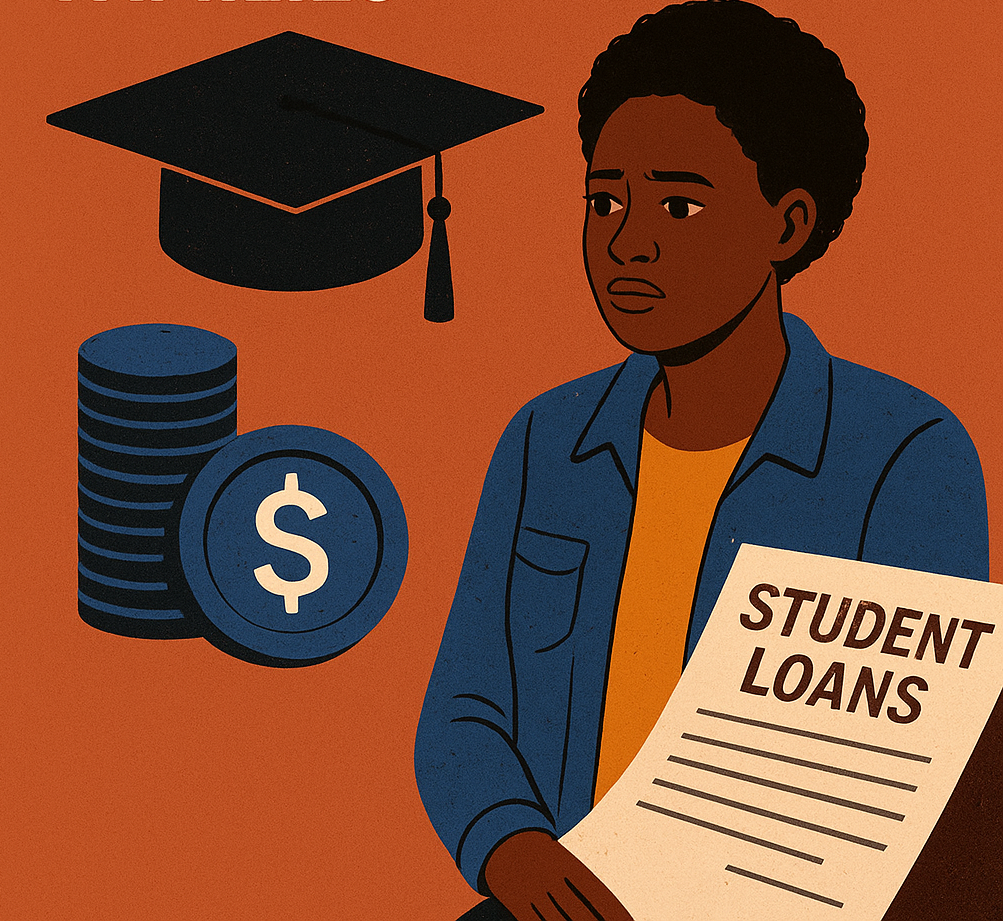
Africa Bazaar Magazine | November 25, 2025
The U.S. Department of Education has unveiled sweeping federal student loan changes—set to take effect July 1, 2026—that could reshape the future of graduate education for millions of Americans. For first-generation African families, who have long relied on advanced degrees as the surest pathway to upward mobility, the impact may be especially profound.
The rules, part of President Trump’s “Big Beautiful Bill,” reclassify a wide range of graduate degrees as non-professional. Nursing, physical therapy, occupational therapy, public health, social work, education, architecture, and even MBAs will no longer qualify for the higher federal loan caps traditionally reserved for professional programs like medicine, law, and dentistry.
The shift doesn’t question the academic legitimacy of these degrees—but it changes how much students can borrow. Graduate students in the reclassified fields will face federal loan caps of roughly $100,000, instead of the $200,000 limit still available to the 11 degrees that kept their “professional” status.
For African immigrant households—especially Nigerian, Ghanaian, Kenyan, Ethiopian, and Cameroonian families—this hits at the heart of a generational strategy. Many first-generation Americans are steered toward nursing, public health, social work, engineering, and allied health programs—fields that are both culturally valued and tied to stable, upwardly mobile careers. These are also the sectors most affected by the reclassification.
PARTNER PRODUCT
With graduate tuition rising—doubling over the past 30 years and jumping 30 percent just within the last decade—students in expensive programs may now struggle to bridge the financial gap. Families who once relied on federal loans may be pushed toward risky private loans, part-time enrollment, or delaying advanced degrees altogether.
The decision arrives as the administration phases out Grad PLUS loans—the federal program that helped graduate students cover costs after they maxed out standard loans—and imposes new limits on Parent PLUS loans. In their place, a new Repayment Assistance Plan will become the default option for borrowers.
Supporters argue the policy reins in government exposure to debts unlikely to be repaid through public-service loan forgiveness or because graduates in lower-paying fields struggle to meet high monthly payments. They say the change will also discourage universities from inflating tuition in programs that have become academic “cash cows.”
But critics warn the reform carries serious consequences for communities already working twice as hard to achieve economic stability in America. First-generation African students disproportionately choose the very degrees now pushed into lower loan brackets. Many also lack the generational wealth, home-equity access, or private credit history needed to cover sudden funding gaps.
The result could be fewer African-American nurses, fewer African public-health specialists, fewer African engineers and therapists—at a time when the U.S. desperately needs more workers in every one of those fields.
As the regulations move toward implementation, educators, immigrant organizations, and policymakers are sounding the alarm: the financial architecture that helped lift thousands of African immigrant families into the middle class may be shifting beneath their feet.
Experts say whether the reforms will deliver affordability—or simply create new barriers—may determine the trajectory of an entire generation.




